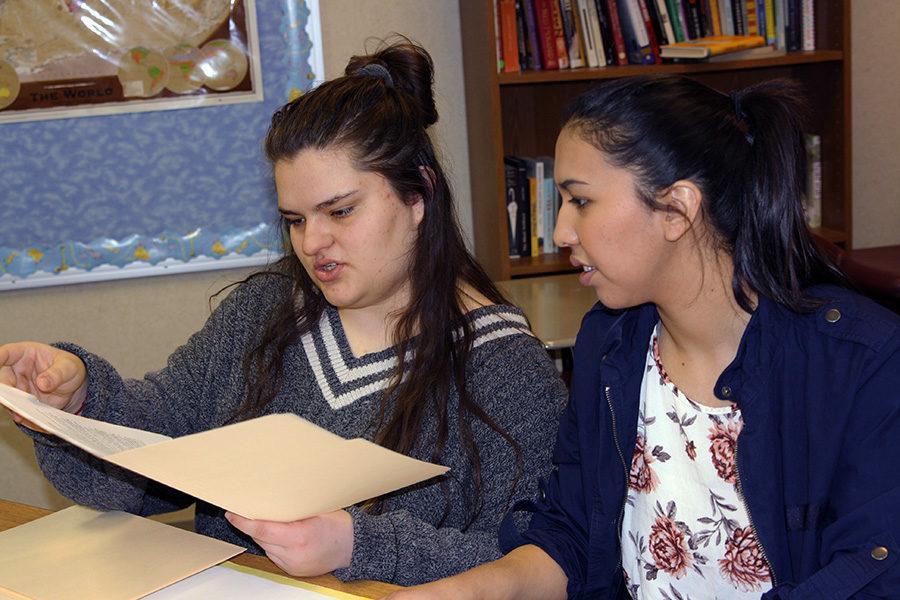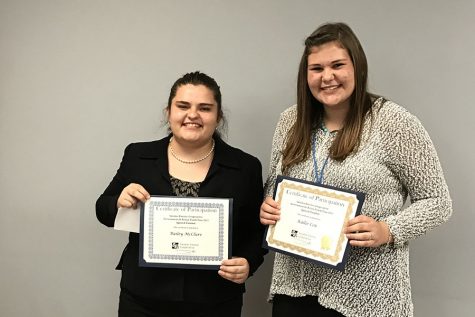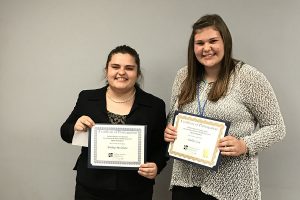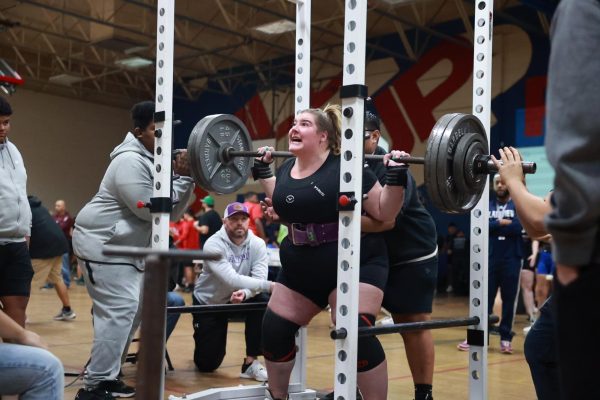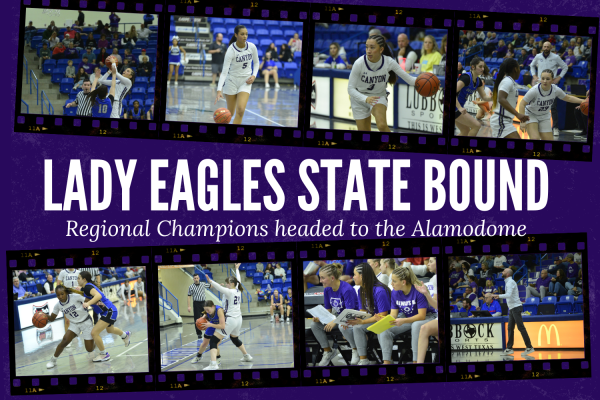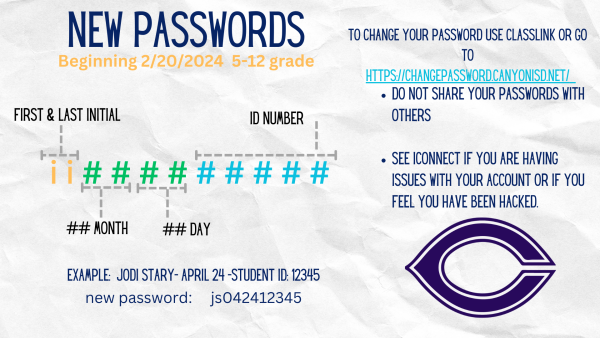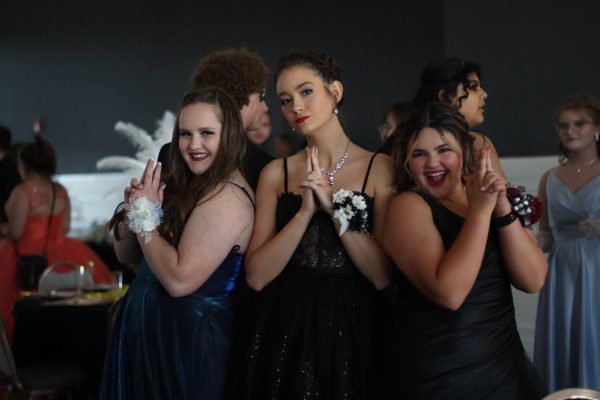Cross-Examination team advances to state
McClure and Dominguez review their case in preparation for the Cross-Examination debate.
Seniors Bailey McClure and Leticia “Obie” Dominguez will advance to the Cross-Examination (CX) state meet next Friday and Saturday, March 17-18, after placing first at District.
Cross-Examination is a form of policy debate which includes a set topic each year. Teams must debate both the affirmative and negative aspects of their given topic. The 2017 topic was whether the United States federal government should substantially increase its economic and diplomatic relations with the People’s Republic of China with arguments ranging from space, human rights and climate change.
“I never could have imagined doing this my freshman year or even last year,” McClure said. “There’s a lot of political jargon. That’s the crazy thing about debate: sometimes, it makes you feel you have no idea what you’re talking about, but ultimately, it makes you know what you’re talking about.”
Each team competes in three guaranteed rounds per tournament–more if the team advances. Most teams will argue both stances at least once, with position decided by a coin toss in the round.
“It’s so exciting because you don’t know what you’re going to get,” Dominguez said. “You get nervous about it.”
When sides are chosen, the affirmative is allowed to decide which points to argue, while the other side has to negate the points.
Looking at the facts and acknowledging there are valid points on both sides of any argument helps you determine what you believe.
— Bailey McClure, 12
“Having such a broad topic as ‘should we engage with China?’ leaves a lot of room for multiple interpretations,” McClure said. “There’s a plethora of topics you can see because the United States and China are so interconnected, so that’s the difficulty of being the negative team.”
McClure said arguing both sides of the issue has made her beliefs strong, despite preconceptions.
“A lot of people think if you’re going to argue whatever you’re told to, then it makes your beliefs weak,” McClure said. “Looking at the facts and acknowledging there are valid points on both sides of any argument helps you determine what you believe.”
McClure and Dominguez continuously prepare and update their set affirmative case involving the South China Sea. During tournaments, the affirmative side has eight minutes to present an argument.
“One of the things that are difficult about CX is fitting large amounts of information into short speeches,” McClure said. “Eight minutes may seem like a long time to speak, but when you have as much information as we have to get through it ends up being a lot about how quickly you speak. It’s about 20 pages in eight minutes.”
Both seniors are competing in Cross-Examination for the first time, as previously neither found a partner for the event.
“I think we were lucky to be paired,” McClure said. “I feel like we have similar goals and work ethics.”
McClure said the two have worked hard to catch up to the competition, as they do not have the same experience as most other teams.
“CX is a completely different beast,” McClure said. “A lot of the people we’re going up against are people who having been doing it for years, and we’ve been doing it for a semester. We have to work a lot harder to be prepared.”

Heyo! I am Jamie and this is my first year on staff. I am a junior, and I am very excited for this year. I enjoy reading, creative writing, watching Sailor Moon and listening to K-pop. I invest most of my time in cheesy science-fiction, which includes...

